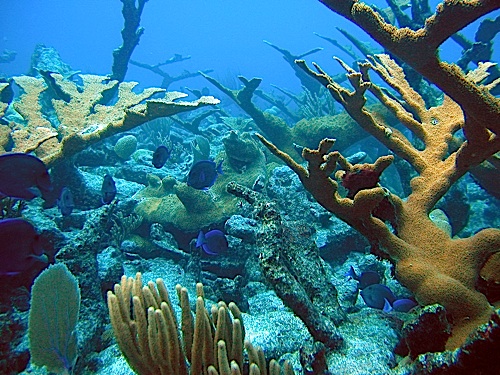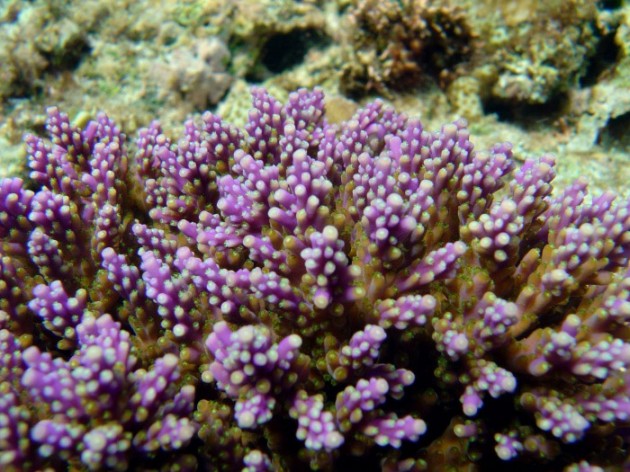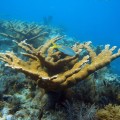Healthy reefs with more corals and fish generate predictably greater levels of noise, according to researchers working in Panama. This has important implications for understanding the behaviour of young fish, and provides an exciting new approach for monitoring environmental health by listening to reefs. Contrary to Jacques Cousteau’s ‘Silent World’, coral reefs are surprisingly noisy places, with fish and invertebrates producing clicks and grunts which combine to produce cacophonies of noise. Each reef is subtly different depending on the size and composition of the resident community.
By analysing recordings of coral reefs from the Las Perlas Archipelago in Pacific Panama ( Central America ), marine biologists working from the Smithsonian Tropical Research Institute have found that some reefs are noisier than others, and these differences in noise provide useful information about the state of the reef. Exeter University researcher Emma Kennedy working with biologist Steve Simpson and acoustician Marc Holderied, both from the University of Bristol’s School of Biological Sciences, found that healthier reefs were louder, with a clear association between overall noise level generated and the amount of living coral. Marine biologist Hector Guzman of the Smithsonian Tropical Research Institute collaborated on the study.
A more detailed investigation of the sound produced by some of the reefs showed that lower frequency sounds provided more information on the numbers of fish living on the reef, while the intensity of higher frequency reef sounds gave an indication of coral diversity. This is the first time that a link has been made between noise generated by individual reefs and the specific habitats and communities making up that reef.
Previous work by Simpson has shown that larval fish and corals returning to reefs after spending their first few weeks out in the plankton, search for habitat by listening out for, and moving towards, reef noise. Sound travels well underwater, meaning that noise produced by a reef can propagate several kilometres out to sea.
The study highlights the potential for using audio recordings to monitor the health of reefs. Usually, scientific assessment of reef health requires teams of scuba divers and huge quantities of equipment and so is costly, time consuming and difficult in remote areas.
The team are hoping that their findings will prompt other scientists to investigate reef sound further.
Investigation of the acoustic properties of reefs is a relatively new area of science but already we’re realising that there’s more to underwater noises than just whale and dolphin communication” Kennedy says. “Reefs may be broadcasting a lot of information out into the sea that both humans and marine animals could use. We’re hoping that our findings will encourage more research into this area, and are excited this might lead to the development of new tools for assessing reef health.”
The research is published in the Journal of Experimental Marine Biology and Ecology.








